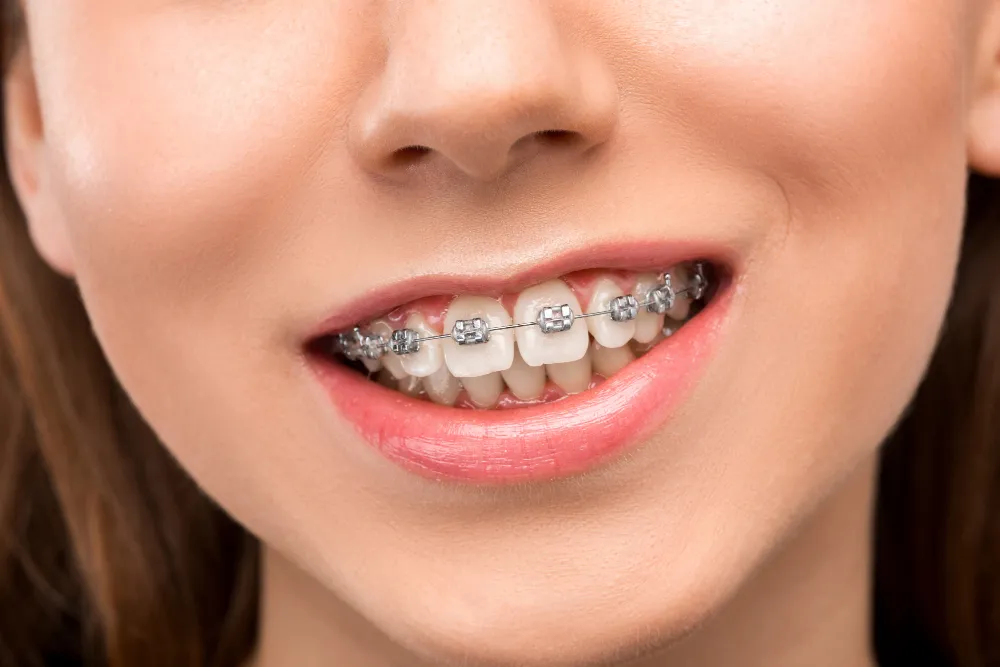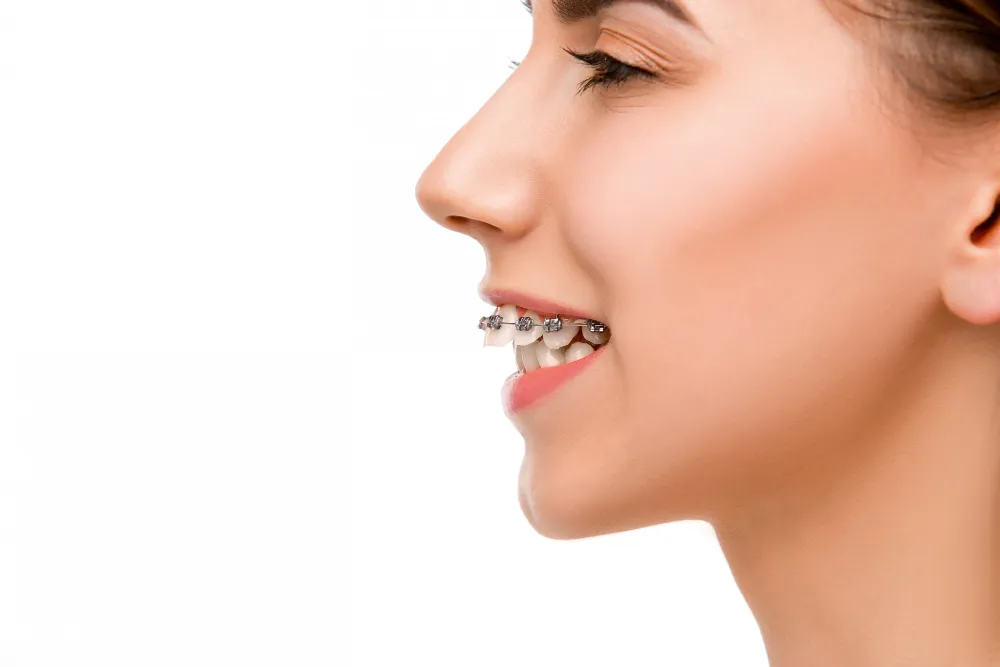
Are you planning to have braces but afraid of the pain? Many people wonder how much pain they will feel when they get braces. While the amount of discomfort can change depending on several things, most people feel some soreness or discomfort when they first get braces or after adjustments.
So, how much do braces hurt on a scale 1-10 well, the good news is that the pain that comes with braces is usually around 3-4. That’s right; it’s not as bad as you might fear! Of course, some people may feel more discomfort than others, but most people find any pain or soreness that comes with braces easy to deal with.
Learn why and how much do braces hurt on a scale 1-10
The discomfort with braces usually goes away after a few days of getting them or after adjustments. Eating soft foods and avoiding anything that could harm your braces is a good idea. Over-the-counter painkillers like ibuprofen can also help with any discomfort.
Factors that affect the level of pain
Do you want to know what factors affect how much pain you feel when you get braces? While some discomfort or soreness is expected, the pain can change depending on several factors. Knowing these factors can help you prepare for the experience and deal with any discomfort.
Here are some factors that can affect how much pain you feel when getting braces:
| Kind of Braces | The kind of braces you pick can make a big difference in how much pain you feel. Traditional metal braces are known for being the most painful, while clear aligners tend to be the most painless. Ceramic and lingual braces are somewhere in between. |
| How Bad Your Orthodontic Problems Are | More severe orthodontic problems may need more adjustments, which can cause more discomfort. |
| Individual Pain Tolerance | Some people may feel more discomfort than others because of differences in pain tolerance. But there are things you can do to deal with any discomfort, such as using over-the-counter painkillers, eating soft foods, and using orthodontic wax to lower irritation. |
| Age and Health | Younger patients tend to feel less discomfort than older patients, as their teeth and bones are more flexible. Overall health can also affect how much pain you feel, as other health problems or medicines may affect pain tolerance. |
| Mouth Shape and Size | The shape and size of your mouth can also affect how much pain you feel with braces. If your mouth is smaller or more crowded, more pressure may be on your teeth during the adjustment process. |
Typical Level of Pain
So, how much pain do you usually feel with braces? While everyone’s experience differs, most say mild to moderate discomfort or soreness. The pain of teeth braces is often overblown. While braces can cause discomfort, it is usually not as bad as people believe. The pain is usually only short-term and will disappear after a few days. On a scale of 1-10, the usual amount of pain is around 3-4. That’s right; it’s not as bad as you might fear!
The discomfort is usually short-term and goes away after a few days of getting braces or adjustments. Eating soft foods and avoiding anything that could harm your braces is a good idea. Over-the-counter painkillers like ibuprofen can also help with any discomfort.

How long do your teeth hurt after getting braces?
Some discomfort or soreness is expected after getting braces, as your teeth are getting used to the new pressure and movement. But, the amount and length of the pain can change depending on the person and the kind of braces.
Usually, the discomfort with braces goes away after a few days to a week of getting them or after adjustments. During this time, you may feel soreness or tenderness in your teeth, gums, and jaw. Eating soft foods and avoiding anything that could harm your braces can help deal with any discomfort.
What to do if your braces hurt?
If you’re feeling pain or discomfort that is very bad or long-lasting, it’s essential to do some things to ease the discomfort and make sure your braces are okay. Here are some things you can do if your braces hurt:
Take Over-the-Counter Painkillers
Over-the-counter painkillers such as ibuprofen can help deal with any pain or soreness that comes with braces. Follow the package directions and talk to your doctor before taking any medicine.
Use Orthodontic Wax
If your braces rub against your cheeks or lips, causing irritation or soreness, using orthodontic wax can help. Put a small wax ball over the problem bracket or wire to lower discomfort.
Eat Soft Foods
Soft foods, such as soup, mashed potatoes, and yogurt, can help lower discomfort and lower the chance of harming your braces.
Rinse with Saltwater
Rinsing your mouth with salt water can help lower swelling and soreness. Mix one teaspoon of salt with a cup of warm water, rinse your mouth with the solution for 30 seconds, then spit it out.
Remember, any discomfort with braces is short-term and a normal part of the process. With proper care and management, you can ensure your braces are okay and comfortable throughout the treatment process.

FAQs
Conclusion
To summarize, some soreness or discomfort is normal after getting braces, and you should take care of your braces and comfort level. The pain level with braces is usually around 3-4 out of 10, varying from person to person.
According to the American Association of Orthodontists, approximately 4 million people in the United States wear braces. As for pain, the American Dental Association suggests that some discomfort or soreness is normal when getting braces, as the teeth are adjusting to the pressure and movement
Remember that the discomfort with braces is only temporary and part of the process. You can keep your braces and comfort in good condition with proper care and management. If you have severe or lasting pain or any worries about your braces or oral health, talk to your orthodontist for help and advice.

